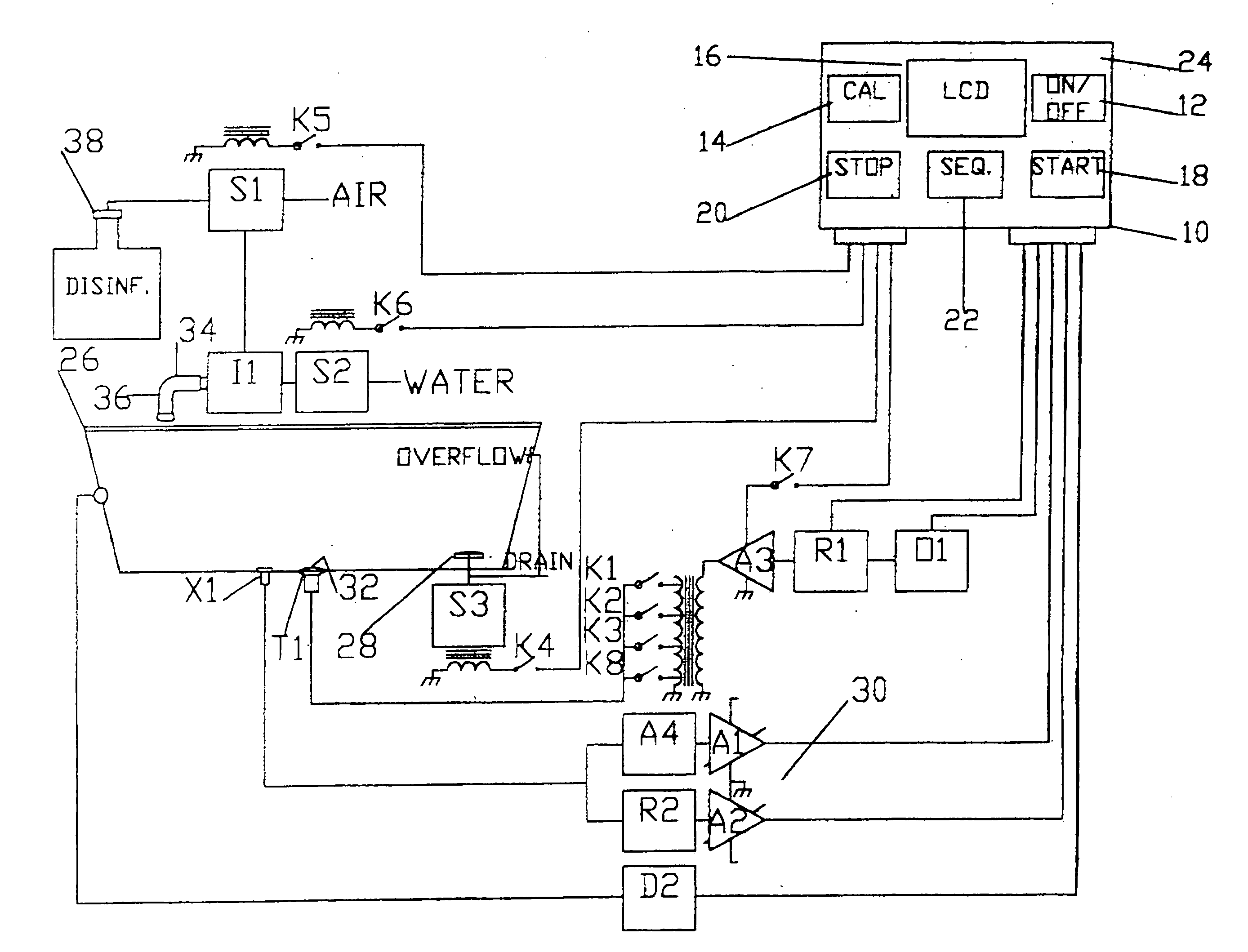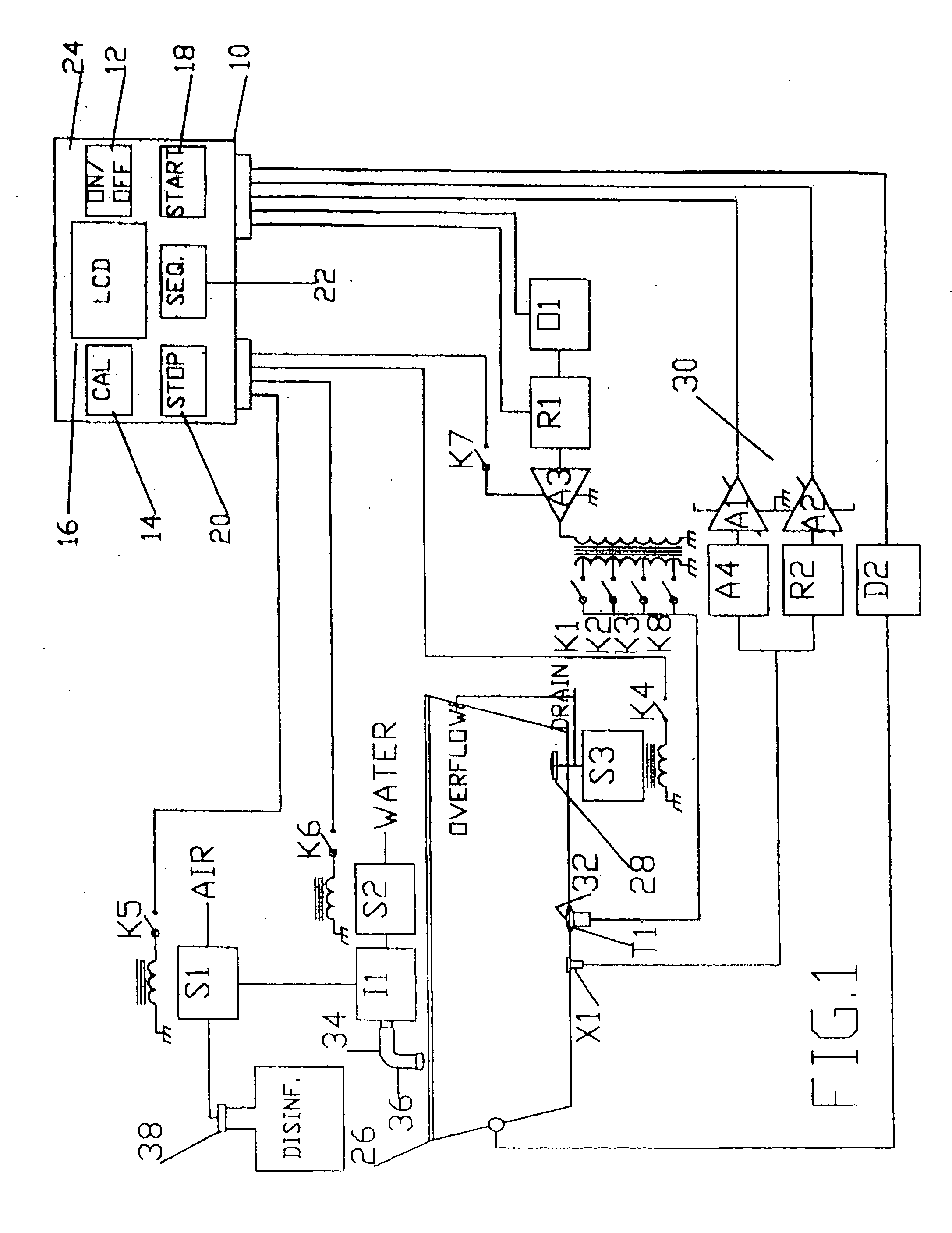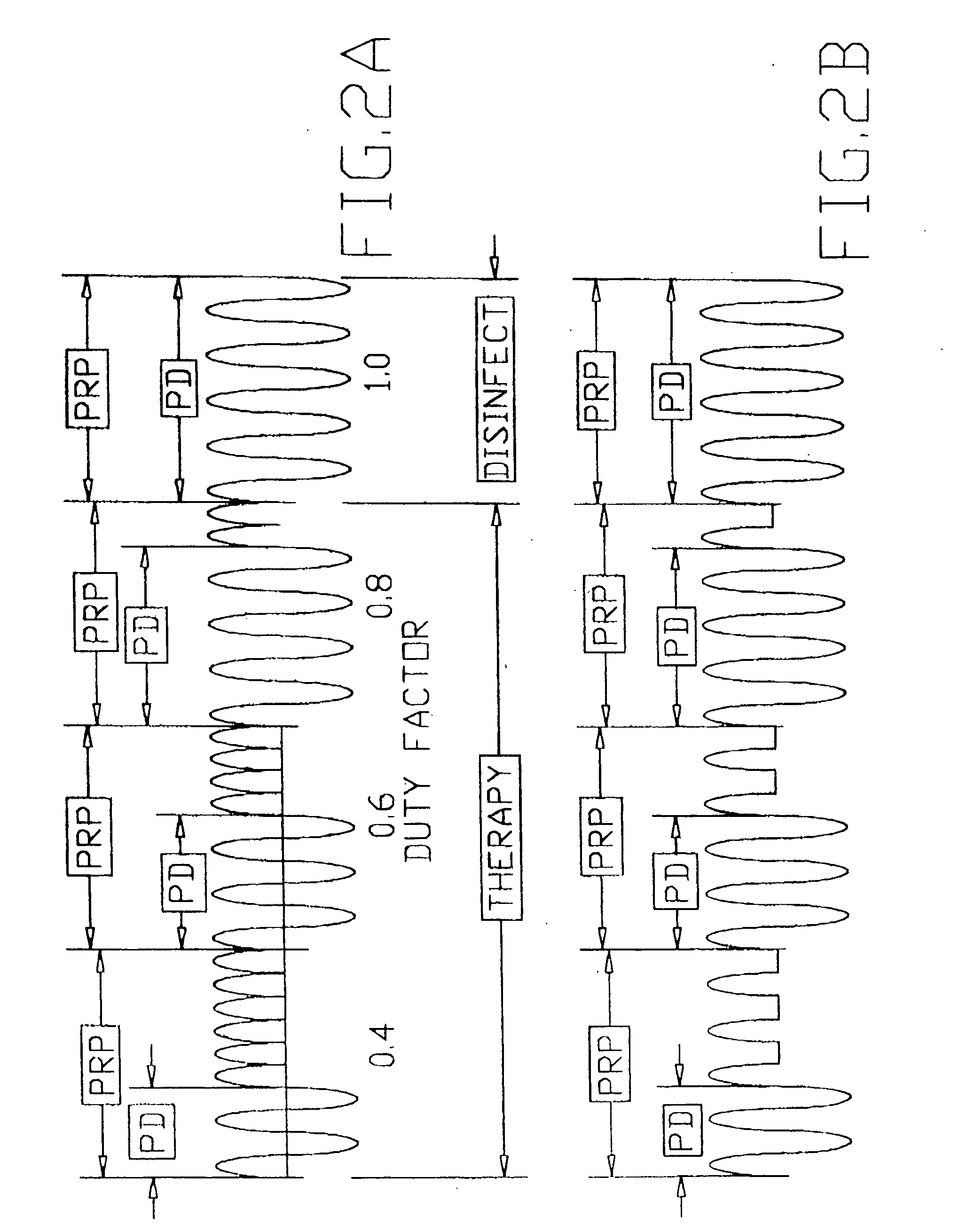Method and device for subaqueous ultrasonic irradiation of living tissue
a technology of living tissue and ultrasonic radiation, which is applied in the direction of ultrasonic/sonic/infrasonic diagnostics, vibration massage, therapy, etc., can solve the problems of unstable bubble growth, transient cavitation, and the inverse of an ultrasonic cleaning modality could damage open wounds, etc., and achieve the effect of effective sterilization of the device and reducing ammonia concentrations
- Summary
- Abstract
- Description
- Claims
- Application Information
AI Technical Summary
Benefits of technology
Problems solved by technology
Method used
Image
Examples
Embodiment Construction
[0072] The following operational description of a wound treatment apparatus applies to human and animal configurations of the apparatus. A configuration of the apparatus for the treatment of fish need not include provision for handling disinfectant in a therapy tank but will include all other operational features plus some additional features necessary to address the needs of fish farming.
[0073]FIG. 1 illustrates a control microcomputer or microprocessor 24 by which means an operator can cause the three processes associated with open-wound ultrasonic therapy to function, as needed. Microprocessor 24 has a control panel (not separately designated) includes an illuminated touchpad 12 for activating the wound treatment apparatus. Another illuminated touchpad 14 initiates a “one time” on-site calibration cycle. A liquid crystal display (LCD) 16 displays all relevant information and operator instructions. A further touchpad 18 is used to initiate a “start selected sequence” routine. Yet...
PUM
 Login to View More
Login to View More Abstract
Description
Claims
Application Information
 Login to View More
Login to View More - R&D
- Intellectual Property
- Life Sciences
- Materials
- Tech Scout
- Unparalleled Data Quality
- Higher Quality Content
- 60% Fewer Hallucinations
Browse by: Latest US Patents, China's latest patents, Technical Efficacy Thesaurus, Application Domain, Technology Topic, Popular Technical Reports.
© 2025 PatSnap. All rights reserved.Legal|Privacy policy|Modern Slavery Act Transparency Statement|Sitemap|About US| Contact US: help@patsnap.com



